Lea Wait's Blog, page 108
June 30, 2021
When is a Fan Letter NOT a Fan Letter
Kathy Lynn Emerson here, today pondering an email sent to me recently. Every once in a while I receive a communication, supposedly from a reader, that doesn’t quite ring true. Since this was one of those, I did not answer it, but now I wonder if I made the right decision.
 Right off the bat, I was disinclined to be receptive. Why? Because although the email came to an email address that included my full name, the salutation read “Dear Kathie.” Call me oversensitive, but you’d think my self-proclaimed “fan” would have known how to spell my name. I respond to Kathy or Kathy Lynn. I wince at Kathy Lee but can understand the error. Kathie Lee Gifford is a lot more famous than Kathy Lynn Emerson. Still, it’s Kathy Lynn on the book covers, on my webpage, on Facebook, and in my email address. This isn’t rocket science!
Right off the bat, I was disinclined to be receptive. Why? Because although the email came to an email address that included my full name, the salutation read “Dear Kathie.” Call me oversensitive, but you’d think my self-proclaimed “fan” would have known how to spell my name. I respond to Kathy or Kathy Lynn. I wince at Kathy Lee but can understand the error. Kathie Lee Gifford is a lot more famous than Kathy Lynn Emerson. Still, it’s Kathy Lynn on the book covers, on my webpage, on Facebook, and in my email address. This isn’t rocket science!

Kathy Bates in MISERY: At least she knows how to spell Kathy!
Okay, leaving the misspelled name aside, the body of the email began by stating that the sender was a “new fan” of mine. Then, instead of, for example, mentioning the title of a book by me that he’d read, or saying anything about why he’s a fan—not to stroke my ego, but just out of common courtesy, and because there should be some reason he likes my writing and is going to the trouble of contacting me—he tells me what state he lives in. The text of the email is all one paragraph. The remainder consists of three questions: “Are your books available in audio? If so what is the link? Also do you have a news letter that I can subscribe to on your website?”
Those are all legitimate queries, but in order to find my email address in the first place, he presumably went to my website. If that’s the case, he should already know there’s no newsletter sign up. What is there is a complete list of my books that includes what few audio editions there are.
My correspondent signed himself “Your new fan, and new listener.”
Did I mention that the entire email was written in purple, using a font size of at least 24?
 But here’s my problem. I always wonder afterward if I should answer an email like this one. What if my “new fan” is just a kid? I’ve written children’s books as Kathy. On the other hand, I’ve received plenty of fan mail from young readers in the past and they’ve always made specific references to the book or books they’ve read. On the other hand, he could be one of those “fans” who try to start a correspondence with every writer than can find an address for. As a general rule, those folks never seem to read books at all, let alone books by the people they’re writing to.
But here’s my problem. I always wonder afterward if I should answer an email like this one. What if my “new fan” is just a kid? I’ve written children’s books as Kathy. On the other hand, I’ve received plenty of fan mail from young readers in the past and they’ve always made specific references to the book or books they’ve read. On the other hand, he could be one of those “fans” who try to start a correspondence with every writer than can find an address for. As a general rule, those folks never seem to read books at all, let alone books by the people they’re writing to.
So, here’s my question to those of you reading this blog: What do you think an author should do in response to a suspiciously un-fanlike fan letter like this one? Answer it? Ignore it? Or maybe just flip a coin?

Kathy Lynn Emerson/Kaitlyn Dunnett has had sixty-three books traditionally published and has self published several children’s books and three works of nonfiction. She won the Agatha Award and was an Anthony and Macavity finalist for best mystery nonfiction of 2008 for How to Write Killer Historical Mysteries and was an Agatha Award finalist in 2015 in the best mystery short story category. She was the Malice Domestic Guest of Honor in 2014. Her next publication (as Kaitlyn) is the fourth book in the contemporary “Deadly Edits” series (Murder, She Edited), in stores in August 2021. As Kathy, her most recent novel is a standalone historical mystery, The Finder of Lost Things. She maintains websites at www.KaitlynDunnett.com and www.KathyLynnEmerson.com. A third, at A Who’s Who of Tudor Women, is the gateway to over 2300 mini-biographies of sixteenth-century Englishwomen, now available in e-book format.
June 29, 2021
Win A Book Wednesday: June 30
It’s Win a Book Wednesday. To enter a drawing for a copy of Sandra Neily’s Deadly Trespass, simply leave a comment below. (“I’ll be giving away one print copy and 5 Kindle copies. Please let me know if you also read on Kindle as well!)
Win The Maine Woods: To win a copy of Sandra Neily’s Deadly Trespass,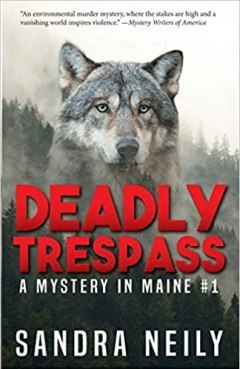 just leave a comment below mentioning the title. Sandra’s an award winning author (from East Boothbay, Maine) and Deadly Trespass is reviewed as:
just leave a comment below mentioning the title. Sandra’s an award winning author (from East Boothbay, Maine) and Deadly Trespass is reviewed as:
“…a beautiful book that brilliantly captures the battle to conserve Maine’s mythical woods…” Ron Joseph, wildlife biologist & Down East Magazine author
“… exceptional, jaw-dropping TALENT…” Women’s Fiction Writers Association finalist
“…an environmental murder mystery, where the stakes are high and a vanishing world inspires violence.” Mystery Writers of America, national award
“…reminiscent of good contemporary American authors such as Joy Williams, Joanna Scott, and Cheryl Strayed” SPR (5 stars)
What Would You Put in Your Scent Museum?
Kate Flora: I started thinking about scents and how they connect to memory this 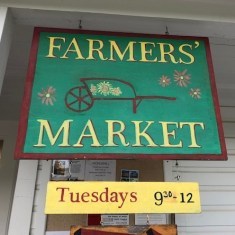 morning after a conversation with the plumber. We were talking about living in Maine and he was recounting his different scent memories of summer on the Harpswell islands. Then he paused and said, “And our kid’s memories are going to be of Purell.”
morning after a conversation with the plumber. We were talking about living in Maine and he was recounting his different scent memories of summer on the Harpswell islands. Then he paused and said, “And our kid’s memories are going to be of Purell.”
I hope not. Summer is a season rich with scents and I hope our children and our grandchildren have a summer filled with scent and the adventures that attach to them and build up a store of scent memories. The question of why scent memory is so powerful and evocative sent me to look for articles on the subject. There were many, explaining in detail how our brains process scent and how the pathway for scent is different from that traveled by sight or sound.
Almost everyone is familiar with the story of Proust and the madeleines. But I think everyone has particular scents that evoke memories.
In this article, Dawn Goldworm, a scent expert who designs signature scents for popular brands, explains that smell and emotion are stored as one memory and says “childhood tends to be the period in which you create the basis of smells you will like or hate for the rest of your life.” https://news.harvard.edu/gazette/story/2020/02/how-scent-emotion-and-memory-are-intertwined-and-exploited/
And as this article in Scientific American notes, “anecdotally, many of us have had experiences where a certain smell—perhaps chlorine, fresh baked cookies, or the salty beach air—floods our brain with memories of a distinct event or location that we associate clearly with certain emotions.” https://www.scientificamerican.com/article/why-do-smells-trigger-memories1/
Of course, writers love doing research, and I moved on to this article, which explains why scents, more than sights or sounds, trigger memories: “A scent is a chemical particle that floats in through the nose and into the brain’s olfactory bulbs, where the sensation is first processed into a form that’s readable by the brain. Brain cells then carry that information to a tiny area of the brain called the amygdala, where emotions are processed, and then to the adjoining hippocampus, where learning and memory formation take place.
Scents are the only sensations that travel such a direct path to the emotional and memory centers of the brain. https://www.livescience.com/why-smells-trigger-memories.html
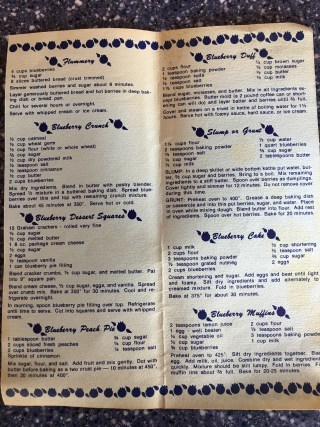 Okay. Enough science. Now for my own world of scent. When we bought our little oceanside cottage twenty-one years ago, it was my first time living so close to the sea, although in Union there were definitely days with a touch of sea in the air. We would arrive late on Friday night after work, get out of the car, and be met with a wave of briny air. Sometimes it was foggy air that left its touch on our skin, but it was the scent that always heralded our arrival. It always felt somehow extra nutritious, and I would inhale deeply and feel welcomed to the weekend.
Okay. Enough science. Now for my own world of scent. When we bought our little oceanside cottage twenty-one years ago, it was my first time living so close to the sea, although in Union there were definitely days with a touch of sea in the air. We would arrive late on Friday night after work, get out of the car, and be met with a wave of briny air. Sometimes it was foggy air that left its touch on our skin, but it was the scent that always heralded our arrival. It always felt somehow extra nutritious, and I would inhale deeply and feel welcomed to the weekend.
The scents of the sea, carried by wind and fog, are different from the scents I grew up with on a lakeside farm. There the water had its own special scent, of decaying leaves, and water plants and something of the smell of hot sun on the rocks. Before we could go down to the pond, there were always chores. Often ironing, and the fresh scent of hot iron on cloth. Weeding the garden or harvesting produce, with the scents of the various vegetables growing there. The pungent smell of tomatoes, the ferny smell of carrot tops, the distinctive scent of peppers, or peas, or green beans.
Other days, the chores involved picking berries, and there would be the strange, sweet smell of those blueberries berries that got smushed, or the tempting, yet slightly acidic smell of raspberries, or the sweet, tempting smell of ripe strawberries.
smell of those blueberries berries that got smushed, or the tempting, yet slightly acidic smell of raspberries, or the sweet, tempting smell of ripe strawberries.
The trip down to the pond was through the fields. Sometimes they would smell of fresh mown hay. Other days of the scent of leaves drying in the August heat. Then back at the house, since we always made our own bread, there would be the irresistible smell of hot, fresh bread.
This article from the New York Times suggests an exercise for school children, but it can just as easily be an exercise for anyone: make yourself a smell museum. You already know some of what I’d put in mine. I’d also add gardenias, my favorite flower, and stargazer lilies. What would you put in yours?
June 28, 2021
How Living in Maine Influences Our Writing
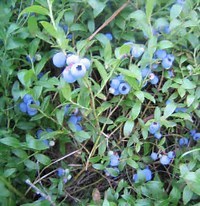 Today, we’re sharing some of the ways that living in Maine influences our writing. Weather? Agriculture? Farmer’s markets? The people, their stories and their character? Small town gossip that may know a family’s stories for generations? Those cell phone black holes that urbanites don’t believe in? Getting stuck behind a tractor when you’re in a hurry to get somewhere? If you are a Maine writer, please feel free to chime in with your own thoughts and experiences of being a Maine writer.
Today, we’re sharing some of the ways that living in Maine influences our writing. Weather? Agriculture? Farmer’s markets? The people, their stories and their character? Small town gossip that may know a family’s stories for generations? Those cell phone black holes that urbanites don’t believe in? Getting stuck behind a tractor when you’re in a hurry to get somewhere? If you are a Maine writer, please feel free to chime in with your own thoughts and experiences of being a Maine writer.
Kate Flora: This is a fascinating topic, and I’m glad we’re discussing it. It’s hard to single  out individual aspects of Maine and my writing, as they are so intertwined, but I think, hoping this isn’t too much of a cliche, I’d start with the weather. Years ago, when I did my first panel at a national conference, I was assigned to a panel on weather. It seemed like it was going to be a very boring topic, until we all dug in. Then I realized that Maine has WEATHER and that weather has significant effects on the characters and the story. Obviously snow, which slows things down, and presents real physical obstacles to my characters. There is also fog, which is a wonder thing to play with it–the way it obscures places, allows people to hide, distorts voices and vision, and can serve as a way to echo the darkness and danger of my plots. Weather influences what we carry in our cars, and how we dress, and can be a very effective tactic for creating tension.
out individual aspects of Maine and my writing, as they are so intertwined, but I think, hoping this isn’t too much of a cliche, I’d start with the weather. Years ago, when I did my first panel at a national conference, I was assigned to a panel on weather. It seemed like it was going to be a very boring topic, until we all dug in. Then I realized that Maine has WEATHER and that weather has significant effects on the characters and the story. Obviously snow, which slows things down, and presents real physical obstacles to my characters. There is also fog, which is a wonder thing to play with it–the way it obscures places, allows people to hide, distorts voices and vision, and can serve as a way to echo the darkness and danger of my plots. Weather influences what we carry in our cars, and how we dress, and can be a very effective tactic for creating tension.
John Clark: Having lived here for most of my 73 years and been able to visit most of it, I’ve developed a sense of how Maine is divided into more than the Two Maines we commonly hear about. One aspect that gets missed is how wealth and poverty can exist a mile from each other, but not be seen by many. I use the tern hardscrabble a lot because it describes so many decent Maine families. When Kate and I were kids, summer jobs were easy to find and the American dream was still alive. Neither of those are true for many Maine kids/families today.
There are intriguing names of town, roads, physical features (Who wouldn’t like to write about a place named Devil’s Head?), the economy is shifting, hopefully to become more equitable and every day there’s something interesting about a person in the obituary notices. Maine’s big in terms of geography, but small in terms of connections and people are very willing to chat, often about things which make terrific fodder for a mystery.
Kaitlyn Dunnett/Kathy Lynn Emerson: When I started my Liss MacCrimmon mystery series with Kilt Dead, I was, quite frankly, looking to make things easy on myself. One of the ways I did that was to set the novels in, literally, my own back yard, the foothills of the mountains of Western Maine, close to ski areas but nowhere near the ocean. No lobsters need apply. For thirteen books, I was able to explore small town rural Maine life in “the other Maine” and I’ve loved doing it. I’ve taken readers to a Christmas tree farm, a town meeting, and countless local celebrations, some based on real ones and others entirely figments of my imagination. From Highland Games to March Madness Mud Season festivities in Moosetookalook, I’ve had a great time, and I hope readers have, too. Sadly, the series came to an end with last year’s A View to a Kilt, and I moved back to my childhood stomping grounds in rural New York State for a setting in a new series, but Western Maine is likely to crop up again, at least in a short story or two, in the future. How can it not? I still live in the same place.
Susan Vaughan: I have always made up stories. The first came about because as a child I couldn’t go to sleep. When I learned to read, I wrote some down, but didn’t pursue writing seriously. I went to college and then grad school to have a “real” job as a teacher. When we moved to Maine some forty years ago, among the first people I got to know socially were a couple of novelists and a sculptor. It seemed that creative people were thick on the ground here. What was it, I wondered. Then one summer when walking the dog in the woods, I got an idea for a young adult novel. My husband, who’d heard me muttering about writing for years, bought me an electric typewriter and said go for it. That first effort was published as Pentangle by a now defunct online press. But it was a start. I like to think I would’ve found my way to writing fiction anyway, but who knows. Maybe it is Maine itself–the natural beauty, the people, the je ne sais quoi in the atmosphere that fosters creativity.
Maggie Robinson: I’ve lived in Maine longer than anywhere else (New York, Florida, Massachusetts, Virginia, Ohio, Connecticut), but I don’t think I’ll ever be considered a true Mainer. And that’s fine. I’ve had two of my four kids here, but I’m reminded of the saying “Just because the cat had kittens in the oven, it doesn’t make them biscuits.”
Most of my books take place in Great Britain, but I began writing them in Maine. It was the quiet and the charm and the green that helped me see comparable English villages in my mind’s eye. I like to think I have an English cottage garden with roses, foxgloves, lilacs, and peonies in profusion, plants that banish all thoughts of winter for a brief spell. The garden is a respite and responsibility. It connects me with life itself, even if I’m killing off a couple of worthy victims as I write and weed.
June 25, 2021
Weekend Update: June 26-27, 2021
 Next week at Maine Crime Writers there will be a group post on Monday and posts by Kaitlyn Dunnett/Kathy Lynn Emerson (Thursday) and Kate Flora (Friday). Some Wednesdays from now on will be “Win a Book Wednesday” with giveaways, drawings, and announcements of winners. Be sure to stop by at mid-week to see what’s new. This coming Wednesday, Sandra Neily will be giving away one of her books. Be sure to check it out.
Next week at Maine Crime Writers there will be a group post on Monday and posts by Kaitlyn Dunnett/Kathy Lynn Emerson (Thursday) and Kate Flora (Friday). Some Wednesdays from now on will be “Win a Book Wednesday” with giveaways, drawings, and announcements of winners. Be sure to stop by at mid-week to see what’s new. This coming Wednesday, Sandra Neily will be giving away one of her books. Be sure to check it out.
In the news department, here’s what’s happening with some of us who blog regularly at Maine Crime Writers:
from Kaitlyn Dunnett: GIVEAWAY WINNER! The winner of a copy of I Kill People for a Living is Alice. Please contact me at KaitlynDunnett@gmail.com with your last name and mailing address so I can send you your book. Thanks to everyone who left a comment.
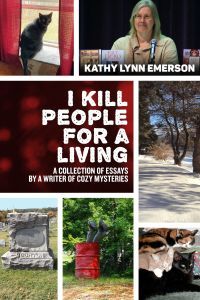
Sandra Neily news: Live near Portland, Maine? Each Wednesday in July Maine Women Fly Fishers has a practice casting clinic. I’ll be volunteering Wednesday, July 7, but also signing some books for folks who live nearby. New to the sport? Check out their FB page. Lots of welcoming things for new comers. (The narrator of my series is a fly fisher. Here’s a bit from the novel.)
In the gorge caddis flies poured over the falls’ edge before they could hatch off the water. Insects swirled around my feet, tissue-paper wings battered and useless. I tied on a mangled fly that resembled a crippled caddis. If I had to explain fly-fishing to people who’d never waded a stream, I’d say it was three-dimensional, wet chess: moves and countermoves under the water, over the water, and on the water itself—on that thin membrane that divides fish from folks.
I cast upriver into the current. My fake fly floated loosely among the bodies of its real relatives. I jerked the rod tip to twitch my deception into life. The brook trout that swallowed my fly was as cold as a fish can get without being wrapped in the freezer.
And this from Encircle Publications: https://encirclepub.com

Some great news from Charlene D’Avanzo:
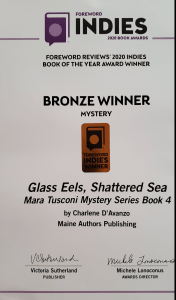
Kate Flora is thrilled to have her story, Best Served Cold chosen for the Crime Spell anthology, Bloodroot. Here’s the author line-up:
The editors at Crime Spell Books, Susan Oleksiw, Leslie Wheeler, and Ang Pompano are pleased to announce that the following stories by these amazing authors will appear in Bloodroot, Best New England Crime Stories anthology #19.
Congratulations All! Look for it in November 2021!Christine Bagley “Valhalla”Brenda Buchanan “Means, Motive and Opportunity”Bruce Coffin “Murphy’s Law”Hans Copek “The Visa”A.L. Dawson “The Crossing”Kat Fast “Only You”Kate Flora “Best Served Cold”Judith Green “Virtue Is Its Own Reward”Jane Haertel “Where the Wild Pigs Are”Vaughn Hardacker “Just Like Jesse James”Zakariah Johnson “Egg on Her Face”Frederic T. Jones “Bounty”Chris Knopf “Rescue”Lisa Lieberman “The Virgin’s Necklace”Edith Maxwell “Dark Corners”Susan Oleksiw “Chuck Zanger Exceeds His Skill Set”Eugenia Parrish “A Death at the Crossroads”Ang Pompano “Directions to Justice”Stephen D. Rogers “The Baby Screamed Murder”Clea Simon “No Cities to Love”Sarah Smith “Jane Austen’s House”Janet Raye Stevens “Dirty Water”Leslie Wheeler “Watchers”An invitation to readers of this blog: Do you have news relating to Maine, Crime, or Writing? We’d love to hear from you. Just comment below to share.
And a reminder: If your library, school, or organization is looking for a speaker, we are often available to talk about the writing process, research, where we get our ideas, and other mysteries of the business. We also do programs on Zoom. Contact Kate Flora
A Writer’s Education and a Rant
John Clark: I’ve just finished the rough draft for what is my 13th book (either written or in some form of completion). Don’t Say It began four years ago as the following concept: Thirteen year old boy with OCD which cost him a big toe, discovers a skeleton while bush hogging alders for his grandfather.
Back in February of this year, the boy morphed into Marcy-Jo Parmenter, a Maine high school junior who lived with her grandfather, a recovering alcoholic and retired county sheriff after her mother hopped on a bus when she was two and her father drank himself to death. The year is 1969 and she’s beyond mad at the way males treat her and other girls her age.
Having graduated from high school in 1966, I thought I had a pretty decent handle on the times, but as the book progressed, I realized how fuzzy memories can get. Here are some of the things I had to remember more carefully or research.
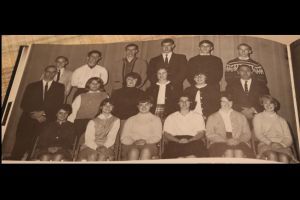
As you can see, skirting the pants issue was common when I was a high school senior.
1-Females had to wear appropriate length skirts, or dresses. I went through my high school yearbook and alas that was the case. Kate verified it was the norm her freshman year at Tufts.
2-Darn near every call was a toll call.
3-Trying to verify I-95 was complete all the way north of Augusta was tricky, so I had a bus go up Route 2 to a state cross-country meet at the University of Maine instead.
4-When Marcy-Jo wanted to increase endurance and leg strength, she couldn’t buy a treadmill, the only ones in existence were in hospitals to test cardio function, so she and her grandfather built a dogsled and she hauled it around with various weight sacks of grain.
5-There were no females in the Maine State Police, nor any female game wardens.
6-Research was slower and more challenging as no online databases existed, hence her making friends with a reference librarian at the Maine State Library.
7-Prices were a heck of a lot lower. When Marcy-Jo and her friend Tess take a truckload of apples to a cider press, the cost per gallon to have them pressed and what they made when selling the resulting cider will have many readers protesting.
8-Which rock groups played where that year, as well as what albums were available needed to be checked carefully.
9-Movies had to be seen at a theater, or on TV because VHS wasn’t around.
10-There were no salvage laws regarding aircraft either at the state or federal level.
11-The term transgender didn’t exist.
I’m sure something will jump out and bite me, but that’s what editing and beta readers are for.
Now for the rant. COVID-19 isolation helped me more than it hurt. I realized I’m less of a social being than I thought. Now that we’re coming out of it, being around others, even family, tires me quickly. However, that isolation gave me plenty of time to contemplate, especially once I got off Facebook. I realized a couple things that in hindsight should have been obvious as hell a long time ago, but weren’t because of the way the world sped up. First, We were horribly racist in World War II. The Japanese internment camps were an atrocity, but I can guarantee you that hell would have frozen over before we dropped an atom bomb on the Germans because they were white and looked like us, but it was okay to bomb people who didn’t. Second, it hit me just how horrible it must be for Black Americans to know that some fat white southerner owned their great grandparents.
That brings me to what’s really frying my bacon these days. The pace of life, thanks (or not) to technology, particularly social media and cell phones, has kicked the ability to think things through to the curb. Even worse, it has decimated most people’s attention span to a point where they’re prone to see something online and accept it at face value. Meals are interrupted continually by text messages, people can’t walk ten feet without pulling out their device for fear they’ve missed something, and social media throws so much at us there’s almost no chance to evaluate.
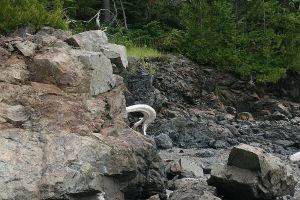
I’m not looking, because I can’t take anymore.
Online advertising is horrendous. Think about all the ads you’ve seen on online newspaper sites, or Facebook. How many times do you need to be harassed about improperly cleaning your butt? Do we really give a rat’s patootie who’s been with whom as a couple for x number of years when anyone who follows celebrities knows the couple shown have no connection. Heaven forbid you’re foolish enough to click on whatever rabbit hole lurks behind the ad. Heck, even Amazon and Google are sliding off the rails thanks to paid ads. More times than not I try searching for something and have to slog through three screens of hits in order to find what I’m looking for. /Rant.
Agree, or disagree, I’d like you to ponder this question for yourself: How can humanity fix what we’ve done to our planet while our minds are dizzied constantly?
June 23, 2021
If it’s summer in Maine, yep, it’s time for a little E.B White

The fade-proof lake behind the store, just like in E.B. White’s day.
I’ll keep this short, because I know you want to get outside.
Yes, somehow summer has arrived, with all the wonders of that short and glorius season in Maine — the humidity, the browntail moth rash, the cars with out-of-state plates going 50 down my speed limit 20 one-lane street.
Some things never change.
In fact, I always think that when spring turns to summer in my town. And if you’ve been reading this blog for a few years, you know where I’m going with this. One of Maine’s best-ever writers, E.B. White, wrote an essay about my town 80 years ago, “Once More to the Lake.” He’d taken his 10-year-old son to the scene of his own childhood summers, and was moved by how little had changed.
And, eight decades later, much of it is still the same. I have yet to find something that captures that feeling of summer, whether it’s in my town or yours, than the words White wrote:
“Summertime, oh, summertime, pattern of life indelible, the fade-proof lake, the woods unshatterable, the pasture with the sweetfern and the juniper forever and ever…”
Now get out there and enjoy it, because you know it’ll be over shortly.
June 22, 2021
Win a Book Wednesday: June 23, 2021
It’s Win a Book Wednesday. To enter a drawing for a copy of Kathy Lynn Emerson’s I Kill People for a Living: A Collection of Essays by a Writer of Cozy Mysteries, simply leave a comment below.
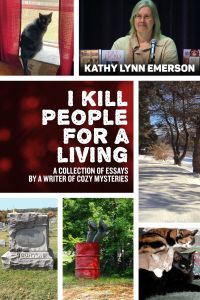
Here’s the book description:
In this unique compilation of 115 essays written between 2011 and 2021, Kathy Lynn Emerson, author of over sixty traditionally-published books in a variety of genres and under several names, writes about everything from how to conquer the sagging middle of a work-in-progress to the adoption of her current cat-in-residence. Other topics highlight eccentricities—her own, a few from her family tree, and those to be found in the rural Western Maine mountains where she lives. Best known for her cozy mysteries, written as Kaitlyn Dunnett, and for historical mysteries written under her own name, Kathy Lynn Emerson has also been published in non-fiction, including the award-winning How to Write Killer Historical Mysteries.
The winner will be announced in the June 26-27 Weekend Update. Good luck!
MORE WIN A BOOK OPPORTUNITY. To win a copy of Sandra Neily’s Deadly Trespass, just leave a comment below with the title of the book and your email address. Sandra’s an award winning author (grew up in East Boothbay, Maine) and Deadly Trespass is reviewed as:
just leave a comment below with the title of the book and your email address. Sandra’s an award winning author (grew up in East Boothbay, Maine) and Deadly Trespass is reviewed as:
“…a beautiful book that brilliantly captures the battle to conserve Maine’s mythical woods…” Ron Joseph, wildlife biologist & Down East Magazine author
“… exceptional, jaw-dropping TALENT…” Women’s Fiction Writers Association finalist
“…an environmental murder mystery, where the stakes are high and a vanishing world inspires violence.” Mystery Writers of America, national award
“…reminiscent of good contemporary American authors such as Joy Williams, Joanna Scott, and Cheryl Strayed” SPR (5 stars)
June 21, 2021
New Maine, Old Maine, What’s Maine?
The annual NYT summer notice of Maine came out last week, and while I give them credit for trying to get vacationers north of Brunswick and west of 95, it’s still the kind of fluff that glosses over some of the deep historical and economic problems the state of Maine deals with.
Combining that with some recent doings in the city of Portland set me wandering down a mental path I’ve spent a lot of time on lately, what constitutes the “real Maine.” I doubt there is such a thing, actually—we’re too broad and diverse to fit in one bucket. And there doesn’t seem to be space for talking abut that kind of thing publicly at the moment—I have hopes for the future—and pretty much regardless of whatever flag you’re flying, you’re going to piss someone off.
I do think, especially in the urban parts of the state, we are a little more caught up in the flavor of the month in thought and action, and like a cat watching the bird feeder, react more to what’s right in front of us than what might be a more ongoing concerns, long-term. So I’d rather promote a couple of books I think go deeply into aspects of Maine that concern us, things we don’t want to forget about in the flush of our prosperity and our influx of talent.
I’ve been talking up Kerri Arsenault’s book Mill Town almost since it came out. 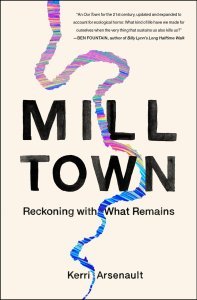 It is simultaneously a work of environmental journalism, memoir, and a chronicle of the painful tradeoffs made by so many working class Maine towns, between a solid local economy and its effects on the people who live there. The book describes Arsenault’s hometown, Mexico, Maine, which for the better part of a century depended on a paper mill as the source of jobs for the town, including for members of her family.
It is simultaneously a work of environmental journalism, memoir, and a chronicle of the painful tradeoffs made by so many working class Maine towns, between a solid local economy and its effects on the people who live there. The book describes Arsenault’s hometown, Mexico, Maine, which for the better part of a century depended on a paper mill as the source of jobs for the town, including for members of her family.
The book is meticulously researched and heartbreaking, thoughtful and perceptive about the economic choices we can be forced into, as well as the way we think about home. As I’ve said before, I don’t think you can understand the State of Maine if you haven’t read this book.
I will say the same thing about Downeast, by Gigi Georges, a nonfiction treatment of the lives of five young women from Washington County, much farther downeast than the New York Times knows of.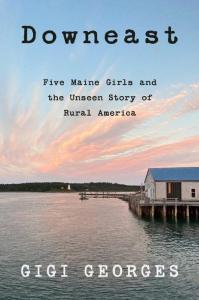
Georges follows the lives and stories of the five teenagers through their involvement in school, sports, work, their families, and all in the context of the challenges of living in that remote and rural northeast corner of the state. The book is a loving but cool-eyed view of the risks and opportunities for young women in rural locations, but ultimately a positive story of how they meet the challenges on their own terms. They redefine their roles and possibilities in the wider world while they continue to respect family and community. And like Mill Town, Downeast is also a meditation on home.
What I struggle with, down here in the sweet wealthy part of the state, is our persistent local air that the southern part of the state defines Maine for too many people. I love the diversity of faces and voices here, but I fear we concentrate too much on the superficial and the positive: the vibrant food scene, the ocean, the beaches, the summer time crowds. I believe we don’t think enough about the totality of people and concerns that this enormous stretch of a state encompasses.
Both of these books are a bracing antidote to a narrow view of Maine, and each in its own way, contributes as much to a diverse view of the state as other efforts do. If I were a rich man, I’d send a copy of each book to every lifestyle editor in the country, though the fact that these are stories without glitter or gloss or heroes, without unambiguously happy endings, makes me think I’ll never see them in the pages of Travel and Leisure.
June 20, 2021
Cucumbers and Trout. (Bit of Salamanders, too.)
Sandra Neily here.
 Before we get to cucumbers and trout …. For the past few years, I’ve weighed in on garden issues. Here’s a blog from the past: “Weird Gardening. Ticks. Slugs, Beetles.”
Before we get to cucumbers and trout …. For the past few years, I’ve weighed in on garden issues. Here’s a blog from the past: “Weird Gardening. Ticks. Slugs, Beetles.”
Here’s this year’s veggie drama. What’s eating the green beans this year? The leaves look like lacy skeletons. It’s not Japanese Beetles this time. (These bean leaf beetles are moving north.) I am using the bug repellant tip below, and I also made up a dish soap spray. (And I replanted some that were eaten to the ground.)
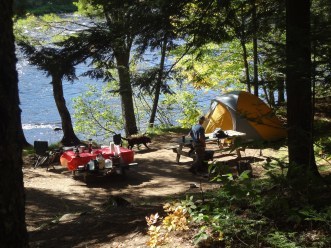 OK! Onward to fish and cucumbers.
OK! Onward to fish and cucumbers.
Fish and cucumbers. It’s not such a stretch. Well, yes it might be. We just returned from a week camped on the Penobscot River. (That’s the pictures. Note: a tent without a fly on top makes a great place to sit away from bugs. When they got really bad (and they did), I worked inside the camper writing and researching salamanders. It might be weird but they are essential in my next Mystery in  Maine novel, “Deadly Attack.”)
Maine novel, “Deadly Attack.”)
While our small camper has a great fridge, lettuce cannot last. Long, wrapped cucumbers do. Here’s a list of how I use cucumbers while camping … or anytime.
Sliced extra thin for chicken or ham sandwiches (good crunch). Chopped fine and added at the last minute to Ramen soup (with a bit of soy sauce). Sliced long for veggie dips. Chopped a bit coarser and added to cooked packaged rice dishes (along with celery). Chopped (again with celery and bit of Parmesan cheese) and added to omelets just before they are done. Sliced thick and salted for happy hour. Chopped large and added to bit of packaged (undressed) coleslaw and handful of raisins, adding a quick dressing made of bit of mayo and balsamic dressing. Dipped into warm peanut butter for a snack. Thick slices tossed to Raven our dog, when the biscuits run out. (She’s not sure about that but recognizes desperate treat times.)
Sliced thick and salted for happy hour. Chopped large and added to bit of packaged (undressed) coleslaw and handful of raisins, adding a quick dressing made of bit of mayo and balsamic dressing. Dipped into warm peanut butter for a snack. Thick slices tossed to Raven our dog, when the biscuits run out. (She’s not sure about that but recognizes desperate treat times.)

And while we are on this vegetable: this woman seems to have the ultimate magic cucumber list. I don’t think much of the cellulite tip, but I am open to all the rest.
Cucumbers… I didn’t know this... and to think all these years I’ve only been making salads with the cucumbers…
Cucumbers contain most of the vitamins you need every day, just one cucumber contains Vitamin B1, Vitamin B2, Vitamin B3, Vitamin B5, Vitamin B6, Folic Acid, Vitamin C, Calcium, Iron, Magnesium, Phosphorus, Potassium and Zinc.Feeling tired in the afternoon, put down the caffeinated soda and pick up a cucumber. Cucumbers are a good source of B vitamins and Carbohydrates that can provide that quick pick-me-up that can last for hours.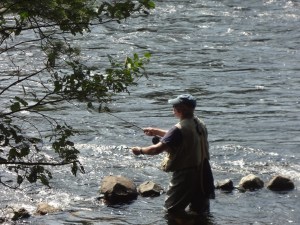 Tired of your bathroom mirror fogging up after a shower? Try rubbing a cucumber slice along the mirror, it will eliminate the fog and provide a soothing, spa-like fragrance.Are grubs and slugs ruining your planting beds? Place a few slices in a small pie tin and your garden will be free of pests all season long. The chemicals in the cucumber react with the aluminum to give off a scent undetectable to humans but drive garden pests crazy and make them flee the area.Looking for a fast and easy way to remove cellulite before going out or to the pool? Try rubbing a slice or two of cucumbers along your problem area for a few minutes, the phytochemicals in the cucumber cause the collagen in your skin to tighten, firming up the outer layer and reducing the visibility of cellulite. Works great on wrinkles too!!!Want to avoid a hangover or terrible headache? Eat a few cucumber slices before going to bed and wake up refreshed and headache free. Cucumbers contain enough sugar, B vitamins and electrolytes to replenish essential nutrients the body lost, keeping everything in equilibrium, avoiding both a hangover and headache!!Looking to fight off that afternoon or evening snacking binge? Cucumbers have been used for centuries and often used by European trappers, traders and explores for quick meals to thwart off starvation.Have an important meeting or job interview and you realize that you don’t have enough time to polish your shoes? Rub a freshly cut cucumber over the shoe, its chemicals will provide a quick and durable shine that not only looks great but also repels water.Out of WD 40 and need to fix a squeaky hinge? Take a cucumber slice and rub it along the problematic hinge, and voila, the squeak is gone!Stressed out and don’t have time for massage, facial or visit to the spa? Cut up an entire cucumber and place it in a boiling pot of water, the chemicals and nutrients from the cucumber will react with the boiling water and be released in the steam, creating a soothing, relaxing aroma that has been shown the reduce stress in new mothers and college students during final exams.
Tired of your bathroom mirror fogging up after a shower? Try rubbing a cucumber slice along the mirror, it will eliminate the fog and provide a soothing, spa-like fragrance.Are grubs and slugs ruining your planting beds? Place a few slices in a small pie tin and your garden will be free of pests all season long. The chemicals in the cucumber react with the aluminum to give off a scent undetectable to humans but drive garden pests crazy and make them flee the area.Looking for a fast and easy way to remove cellulite before going out or to the pool? Try rubbing a slice or two of cucumbers along your problem area for a few minutes, the phytochemicals in the cucumber cause the collagen in your skin to tighten, firming up the outer layer and reducing the visibility of cellulite. Works great on wrinkles too!!!Want to avoid a hangover or terrible headache? Eat a few cucumber slices before going to bed and wake up refreshed and headache free. Cucumbers contain enough sugar, B vitamins and electrolytes to replenish essential nutrients the body lost, keeping everything in equilibrium, avoiding both a hangover and headache!!Looking to fight off that afternoon or evening snacking binge? Cucumbers have been used for centuries and often used by European trappers, traders and explores for quick meals to thwart off starvation.Have an important meeting or job interview and you realize that you don’t have enough time to polish your shoes? Rub a freshly cut cucumber over the shoe, its chemicals will provide a quick and durable shine that not only looks great but also repels water.Out of WD 40 and need to fix a squeaky hinge? Take a cucumber slice and rub it along the problematic hinge, and voila, the squeak is gone!Stressed out and don’t have time for massage, facial or visit to the spa? Cut up an entire cucumber and place it in a boiling pot of water, the chemicals and nutrients from the cucumber will react with the boiling water and be released in the steam, creating a soothing, relaxing aroma that has been shown the reduce stress in new mothers and college students during final exams.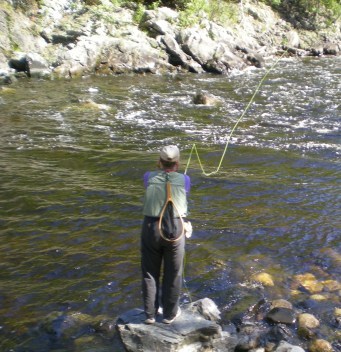 Just finish a business lunch and realize you don’t have gum or mints? Take a slice of cucumber and press it to the roof of your mouth with your tongue for 30 seconds to eliminate bad breath, the phytochemicals will kill the bacteria in your mouth responsible for causing bad breath.Looking for a ‘green’ way to clean your taps, sinks or stainless steel? Take a slice of cucumber and rub it on the surface you want to clean, not only will it remove years of tarnish and bring back the shine, but is won’t leave streaks and won’t harm you fingers or fingernails while you clean.Using a pen and made a mistake? Take the outside of the cucumber and slowly use it to erase the pen writing, also works great on crayons and markers that the kids have used to decorate the walls!
Just finish a business lunch and realize you don’t have gum or mints? Take a slice of cucumber and press it to the roof of your mouth with your tongue for 30 seconds to eliminate bad breath, the phytochemicals will kill the bacteria in your mouth responsible for causing bad breath.Looking for a ‘green’ way to clean your taps, sinks or stainless steel? Take a slice of cucumber and rub it on the surface you want to clean, not only will it remove years of tarnish and bring back the shine, but is won’t leave streaks and won’t harm you fingers or fingernails while you clean.Using a pen and made a mistake? Take the outside of the cucumber and slowly use it to erase the pen writing, also works great on crayons and markers that the kids have used to decorate the walls!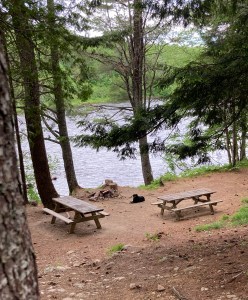
We were all packed. Raven ” No way I’m going. Everything I need is here: sticks, wading anytime, big water bowl, squirrels, lots of spilled picnic food. Bye. See ya.”
Sandy’s novel “Deadly Trespass, A Mystery in Maine,” was a finalist in the Maine Literary Awards, a recipient of a Mystery Writers of America national award and a national finalist in the Women’s Fiction Writers Association “Rising Star” contest. Her second Mystery in Maine novel, “Deadly Turn” is in Sherman’s Books and on Amazon in Kindle and paperback. She lives in the Maine woods and says she’d rather be “fly fishing, skiing remote trails, paddling near loons, or just generally out there.” Find more info on her website .
Lea Wait's Blog
- Lea Wait's profile
- 506 followers



